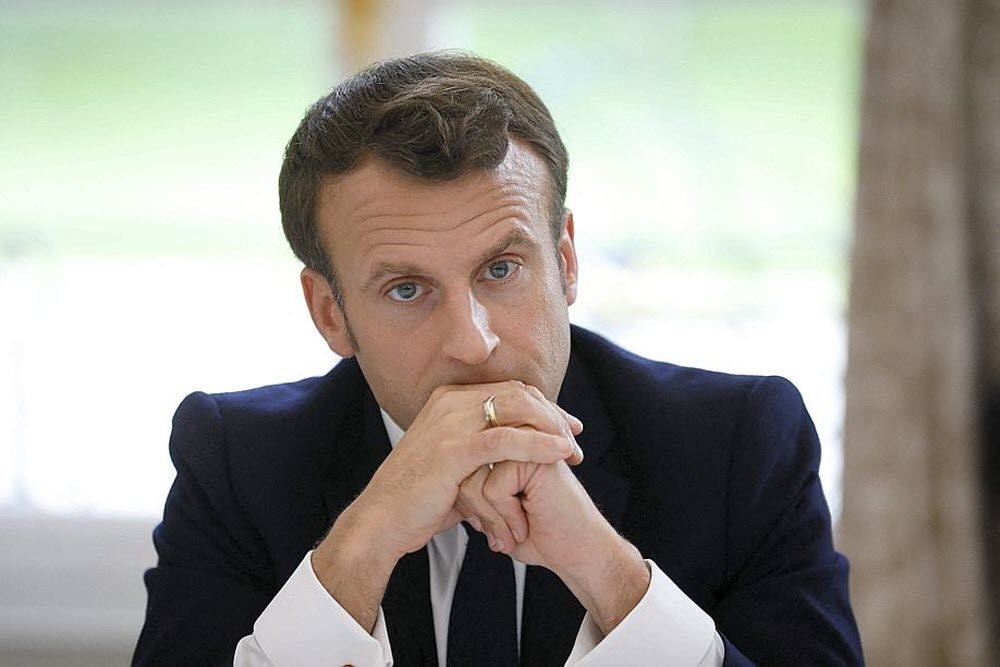Image Credit: Olivier Corsan
On April 24th Emmanuel Macron took 58,5% of the vote in the presidential election against the far-right challenger from the National Rally, Marine Le Pen. He is the first president since 1958 to be re-elected by universal suffrage without cohabitation. Though, this victory did not allow him to retain his absolute majority of 5 years at the National Assembly following the parliamentary elections which is yet crucial to govern. This parliamentary runoff broke records, to Macron’s displeasure, as he is not only the first minority president in Parliament since 1993 but also the first one to face firm opposition from both the radical left and far-right sides of the political spectrum since the advent of the Fifth Republic. Such is the paradox of Macronian politics.
Macron’s arrival has disrupted French politics. Since his first election in 2017, his centrist party’s creation largely contributed to the gradual collapse of the traditional right and left bipartisanship. This allowed for the emergence of a broad but hesitant centrist bloc alongside the unmatched rise of the radical left and far right. This phenomenon blatantly manifests itself in the results of the latest parliamentary elections.
Whereas historically the Socialist Party (PS) and the right-wing Gaullist party took up almost all the 577 seats in the Assembly, with the party of the outgoing president having an absolute majority, the results of the latest parliamentary elections have left a first-time scenario: no clear majority and 3 political blocs all in opposition. Though Macron’s coalition-party ‘Ensemble’ remains the biggest party with 245 seats, his bloc falls short of the 289 seats needed to get an absolute majority. At the same time, the legislative elections’ results were greeted as a ‘divine surprise’ for the National Rally that scored a ten-fold increase, winning 89 seats. On the other hand, the radical left coalition NUPES, united behind Jean-Luc Mélenchon and comprising 4 political parties, won 131 seats.
Such a divided parliament foreshadows a paralyzed legislature as concession and dialogue do not belong to French political tradition. More, it challenges Macron’s image of invincibility by questioning his ability to deliver his ambitious second-term agenda of tax cuts and welfare reforms. These parliamentary results force France into a position to which it has long resisted but that has become prevalent across Europe: the rise of environmental and populist parties as true political forces. Germany, Spain, and Italy are all countries where Olaf Scholz, Pedro Sanchez and Mario Draghi either had to govern with a parliamentary minority or saw their coalition collapse when in power.
Reasons for such a scenario are plentiful: among them is abstention – the act of declining to vote. Abstention, which has been rising for decades in Europe, reached an all-time high in the last French parliamentary elections with more than half the voters (54%) not going to the polling booth. Such disenchanted political climate is particularly characterized by youth engaging in an intermittent, pragmatic, and protesting manner around issues dominating the current debate such as mass immigration, internal security, and purchasing power, which undeniably contributed to the rise of the extremes in France. Such anti-system sentiment and common disillusionment trend among the French people raise a concern about the country’s democratic and republican future, as a potential shift towards the hard right is becoming more than mere speculation.
Another reason that plunged French politics into turmoil resides in the collapse of the Republican Front. The Republican Front is France’s custom of traditional parties (and their voters) joining forces to triumph against the far-right National Rally. The obsolescence of the Republican Front completed the National Rally’s ‘de-demonization’. This process has also been reinforced by Reconquest’s arrival in the political landscape – an even more injurious party on identity and immigration issues – that contributed to making the National Rally more decent and almost tame. Moreover, while confining to the mantra ‘not one vote for the far right’, the voting instructions given by the NUPES were not enough to maintain the Republican Front, letting voters believe that abstention could solve the far-right trouble. Still, the Nupes’ electorate is not the only one to have snubbed this Republican Front. As a result, the presidential majority’s voters abstained at 54% allowing for a sizeable transfer of vote to the National Rally in many constituencies.
The extremes’ ascent and the crumbling of the French hemicycle are not only due to exogenous factors. Though international politics and the pandemic did not help Macron to fully convince his electorate, his political strategy and rhetoric are also part of the factors behind the tsunami that French politics is facing today. As the president trusted what he perceived as sufficient momentum following his re-election, his lack if not nonexistent campaign for parliamentary elections only nurtured his public image as an unpopular and arrogant leader – as the French have often called him. More, his political rhetoric during the campaign which mostly relied on the motto ‘Me or the chaos’ did not work for Macron this time. Rather, his strategy showed that what presently holds together Macron’s coalition is more the exclusion of extremes than a true political project that the French are currently in need of.
As politicians, analysts, and the French people all assert that France risks becoming ungovernable, several political manoeuvres are available to Macron, yet none of them seems maintainable for the next 5 years. The presidential alliance party Ensemble could negotiate an agreement with the right-winged opposition, mainly Les Républicains, which has 64 deputies, hence allowing it to pass the 289-seat threshold of an absolute majority. For now, Les Républicains seems determined to keep the door closed to the presidential coalition. Otherwise, Macron will have to govern without a stable majority and seek it for each bill on a case-to-case basis. The use of article 49-3, allowing for a law to be passed without parliamentary approval, stays at Macron’s disposal but remains double-edged and could well cause his definitive fall. With growing criticism against the government by the radical left after Prime Minister Elizabeth Borne’s first speech, Emmanuel Macron, and his party are facing an arduous parliamentary task.
For Macron, who faces relentless opposition from both fronts, his second term in office involves coping with a dysfunctional parliamentary assembly which reflects the divides among the French people themselves.
3rd year Political Economy student at KCL






0 Comments